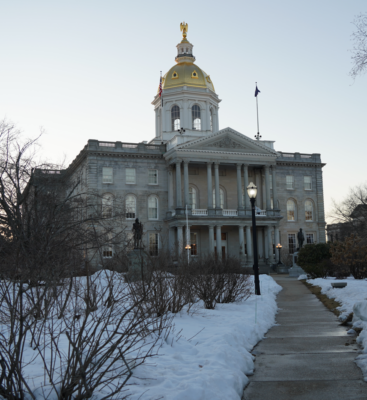Last week, after a bill to charge citizens for access to public documents failed, I called the charge (fee, levy) a tax. Some boob took to X to tell me it was not a tax, as if the government taking money from citizens could be anything but. Later that day, a motion to reconsider was scheduled and reconsidered yesterday.
The vote to reconsider passed, but an effort to table it failed. HB1002 was eventually recommitted, which means it is still alive and back in committee where it was recommended as ought to pass the first time by a vote of 12-8. We’d like to see that change for many reasons, some of which we’ve shared on these pages already.
To facilitate this wind of change, you’ll have to reach out to the committee with many of the same points that helped get the reconsideration vote.
The original floor vote on HB1002 was 193-179. Seven votes the other way, and it fails. After the request to recommit, groups like the ACLU are alleged to have been working on the Democrat’s side in opposition to the legislation with as much enthusiasm as we were working on the Republican side. The vote to reconsider was 195-183. The vote to table it (kill it without killing it; someone can always ask for a vote to take it off the table) failed 126-254, after which it was recommitted.
It is back in the Judiciary Committee from which it originated, and at this point, our goal is to get the committee to vote it inexpedient to legislate, which will make it easier to kill come the next floor vote.
Advocates will do whatever they can to dress this thing up, but at the end of the day, it will be the same old whore in a new dress. A tax on access to public documents, which, as I noted here, “HB1002 will make the government less transparent, less accessible, and less accountable. Is that what you were elected to do in Concord, or was it the reverse?”
Please get in touch with the reps on the Judiciary Committee and politely offer your thoughts in opposition to the bill.
No new fees, fines, levies, or taxes for public documents unless they are against the towns/individuals, making them more difficult to access; we could support that.
